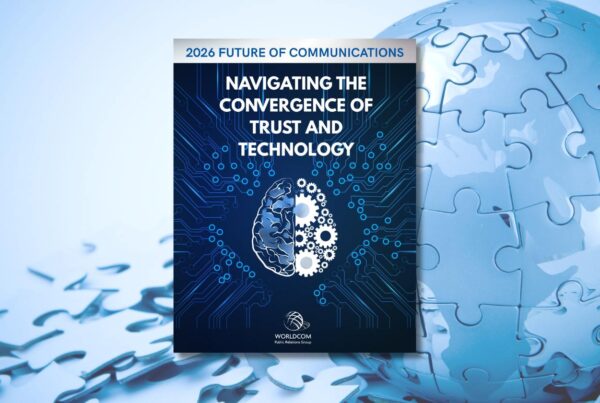By Jackie Liu
This article originally appeared in PR Daily.
At some point in every agency professional’s career, you’ll find yourself in a precarious situation: managing a client contact who is tasked with overseeing PR and marketing – but knows nothing about PR and marketing. Your relationship — and budgets — hang in the balance.
There’s a clear upside: this is a golden opportunity for you to gently educate the client and answer all their burning questions, especially the mundane ones. They feel supported and, in turn, will champion your agency for future projects. It’s a great way to demonstrate your commitment to a successful long-term partnership. There is no plausible scenario that would have you stonewalling the contact, refusing to answer their questions, rolling your eyes every time they speak and ignoring them at meetings. That would be ludicrous, right? You work in public relations! You’re a “people person.”
So, why has that become the modus operandi in a multigenerational workplace?
Plenty of smart people in business and human resources have shared their tips on how to manage a multigenerational workforce. They are helpful but assume that, for the most part, workers struggle with compromising on norms and processes, as if simply updating the company handbook can fix things. An insular company culture may be wildly out of step with what the majority of employees want and expect out of an employer. Now, with five generations sharing a workplace, simple miscommunication has turned into full-blown ideological warfare.
Too often, company leaders prioritize obedience over talent and talent over a toxic personality. What they should focus on is helping their multigenerational workforce foster and develop their social skills, or soft skills. We don’t need to know your college GPA; we need to see your Empathy Quotient score.
As this Harvard Business Review article aptly explains, the capabilities required of CEOs (and by default, all senior leaders and managers) now includes social skills, which were previously relegated to the “nice to have” pile:
Our analysis revealed that social skills are particularly important in settings where productivity hinges on effective communication, as it invariably does in the large, complex, and skill-intensive enterprises that employ executive search firms. In such organizations, CEOs and other senior leaders can’t limit themselves to performing routine operational tasks. They also have to spend a significant amount of time interacting with others and enabling coordination—by communicating information, facilitating the exchange of ideas, building and overseeing teams, and identifying and solving problems.
In agency settings, it’s absolutely impossible to succeed without being a team player or having a growth mindset and being highly adaptable – all (cliché) soft skills. And yet, too many organizations continue to believe these interpersonal skills are less important than a four-year degree.
Consider bringing in new, younger colleagues to evaluate new applicants or weigh in on new business chemistry tests. Seek feedback from undervalued employees. And if you think your agency is doing just fine and there’s nothing to worry about, then maybe you need to look again… or over your shoulder.






